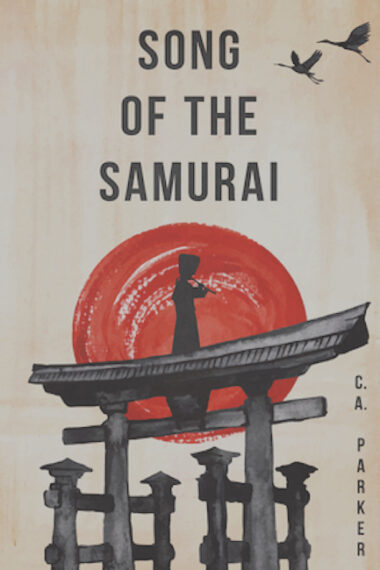You may be surprised to know that I am a fan of historical books set in Asia. Song of the Samurai by C.A. Parker is one that complements my affinity for the genre.
This book is set in 1745 Japan, when rule by Shoguns was the fabric of the order. A musician, Samurai, and monk named Kurosawa Kinko flees his temple amid scandal. As he sets off across Japan, he encounters one character after another, each positively impacting his quest for retribution. But the journey he embarks on isn’t simply one of penance-fueled transition, but rather one man’s incredible transformation in a politically charged landscape.
Taking a cue from some of my culturally inspired favorites, including Memoirs of a Geisha, Shogun, Seven Years in Tibet, The Last Samurai (yes, these were books before movies), I love a good tale of personal evolution. Especially one that changes the heart and soul of the would-be warrior. A good protagonist like Chiyo, or in this case, Kinko, has come to believe they don’t deserve a better life. Yet they still desire the promise of more. When the sub characters they encounter challenge their notion of self-flagellation, they subtly, but not always knowingly, evolve. In time they arrive at the point of self-actualization, which is often a combination of acceptance of circumstance and embracing a new life.
It’s always difficult to find fault with a book by an expert of Japanese culture and a talented author. But a couple of distractions, such as the author flip flopping on referencing the main character Kurosawa Kinko’s name, or the heavy educational insertions took me momentarily out of the storyline, but not for long. I want to stress first and foremost that it’s a beautifully well-written tale. It does have a glossary along with several pages of discussion questions which would make for great academic or social discourse.
I would highly recommend Song of the Samurai to anyone who loves history and tales of compelling sojourning characters.
Book and Image Courtesy of PR by the Book


No comments yet.